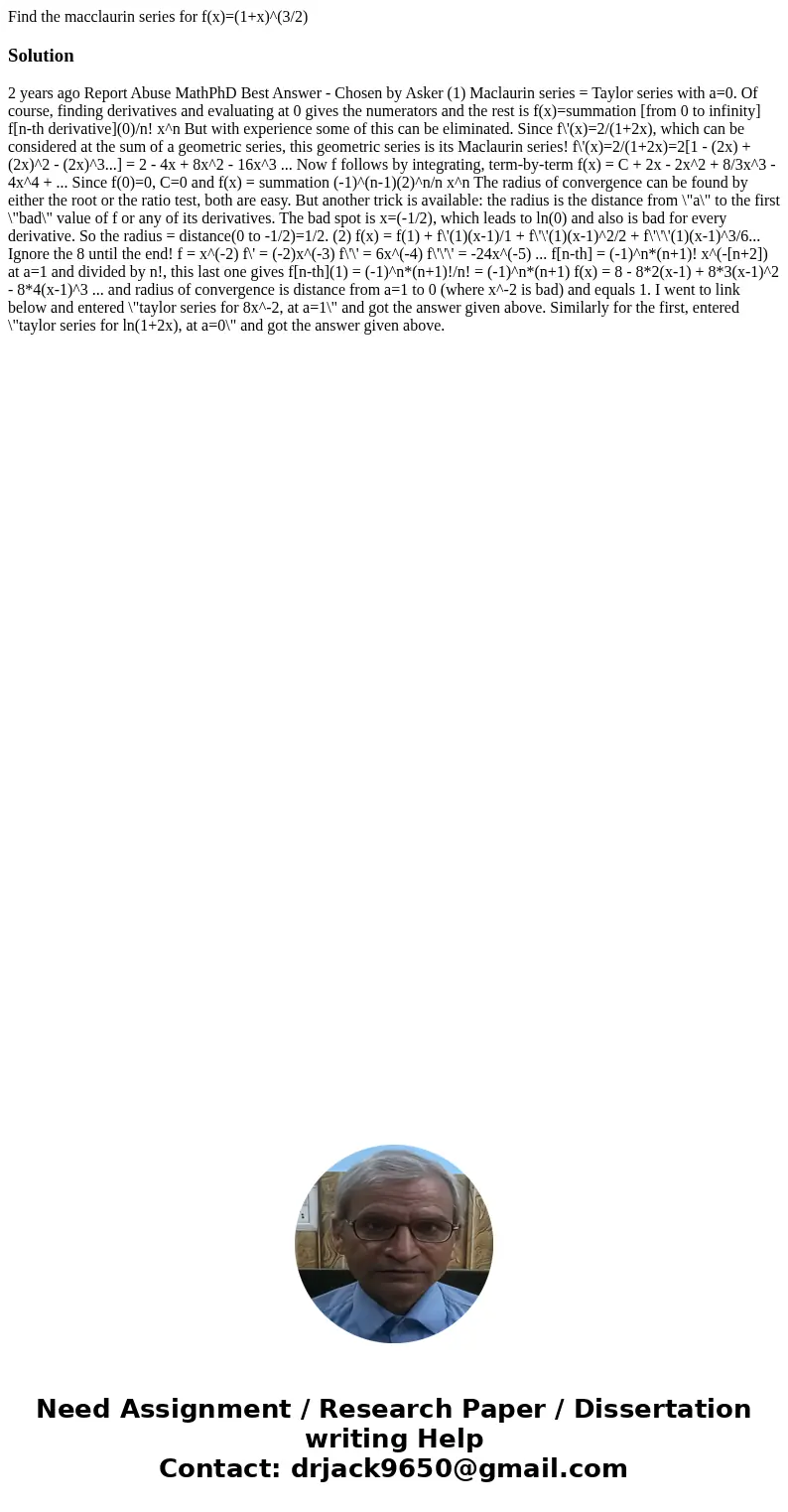Find the macclaurin series for fx1x32Solution 2 years ago Re
Find the macclaurin series for f(x)=(1+x)^(3/2)
Solution
2 years ago Report Abuse MathPhD Best Answer - Chosen by Asker (1) Maclaurin series = Taylor series with a=0. Of course, finding derivatives and evaluating at 0 gives the numerators and the rest is f(x)=summation [from 0 to infinity] f[n-th derivative](0)/n! x^n But with experience some of this can be eliminated. Since f\'(x)=2/(1+2x), which can be considered at the sum of a geometric series, this geometric series is its Maclaurin series! f\'(x)=2/(1+2x)=2[1 - (2x) + (2x)^2 - (2x)^3...] = 2 - 4x + 8x^2 - 16x^3 ... Now f follows by integrating, term-by-term f(x) = C + 2x - 2x^2 + 8/3x^3 - 4x^4 + ... Since f(0)=0, C=0 and f(x) = summation (-1)^(n-1)(2)^n/n x^n The radius of convergence can be found by either the root or the ratio test, both are easy. But another trick is available: the radius is the distance from \"a\" to the first \"bad\" value of f or any of its derivatives. The bad spot is x=(-1/2), which leads to ln(0) and also is bad for every derivative. So the radius = distance(0 to -1/2)=1/2. (2) f(x) = f(1) + f\'(1)(x-1)/1 + f\'\'(1)(x-1)^2/2 + f\'\'\'(1)(x-1)^3/6... Ignore the 8 until the end! f = x^(-2) f\' = (-2)x^(-3) f\'\' = 6x^(-4) f\'\'\' = -24x^(-5) ... f[n-th] = (-1)^n*(n+1)! x^(-[n+2]) at a=1 and divided by n!, this last one gives f[n-th](1) = (-1)^n*(n+1)!/n! = (-1)^n*(n+1) f(x) = 8 - 8*2(x-1) + 8*3(x-1)^2 - 8*4(x-1)^3 ... and radius of convergence is distance from a=1 to 0 (where x^-2 is bad) and equals 1. I went to link below and entered \"taylor series for 8x^-2, at a=1\" and got the answer given above. Similarly for the first, entered \"taylor series for ln(1+2x), at a=0\" and got the answer given above.
 Homework Sourse
Homework Sourse